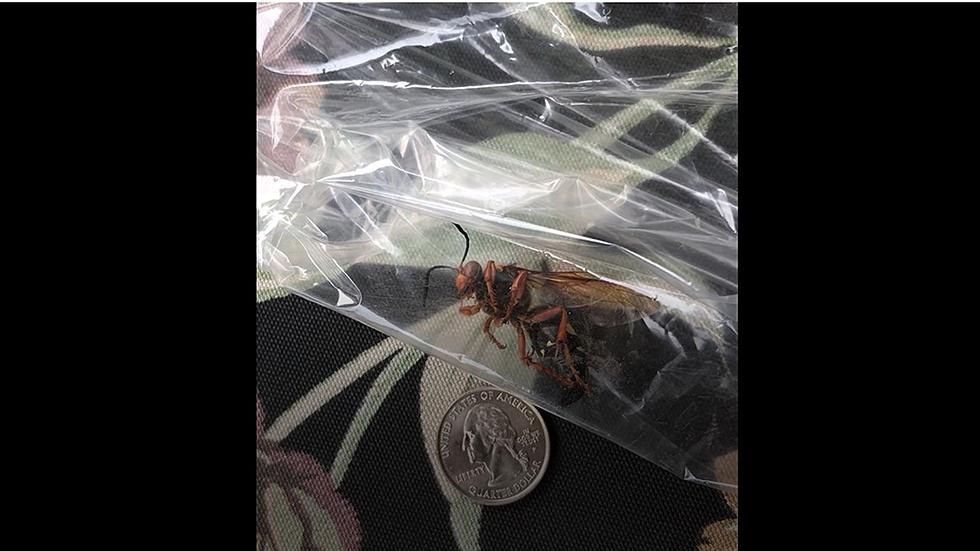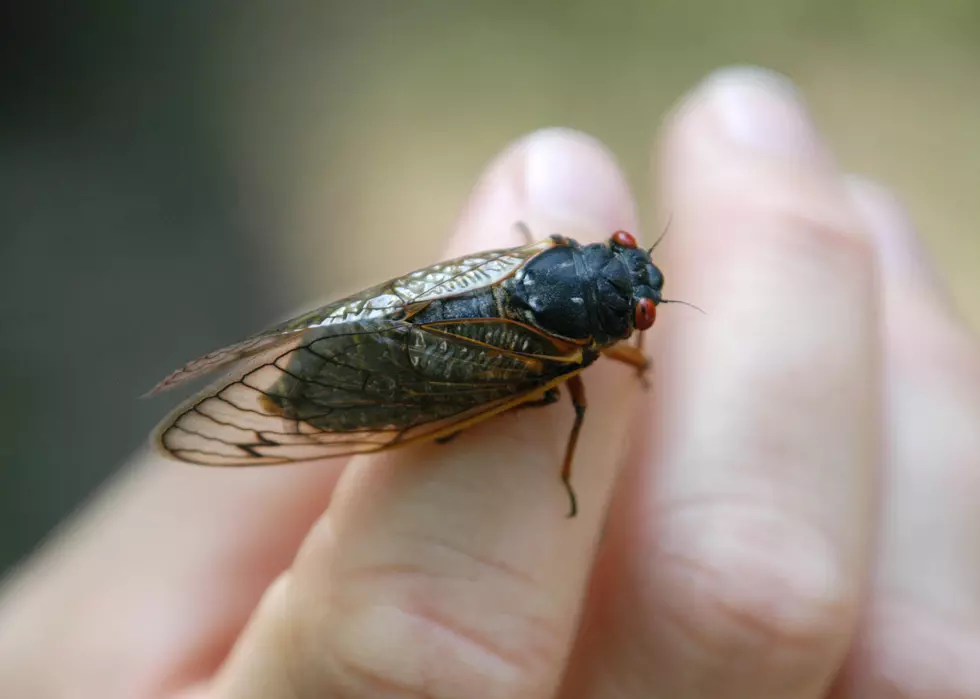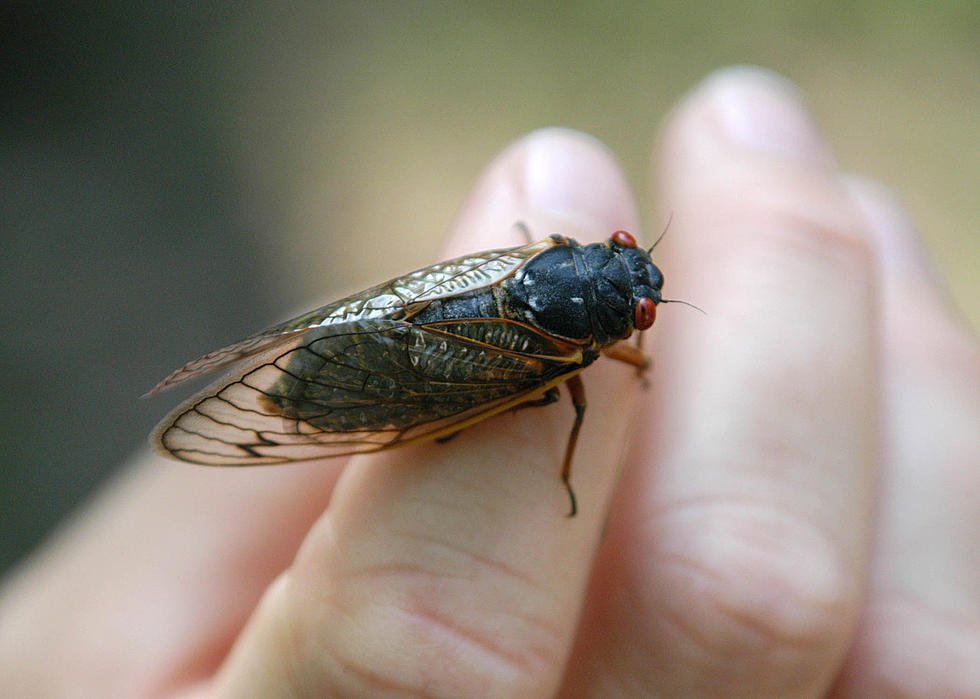
Have you seen this? Cicada killer wasp active right now in New Jersey
Mount Laurel resident Shellie Hughes was almost certain that the discovery she had made in her front yard on July 20 was a living, buzzing murder hornet, the invasive bug that received plenty of media attention in 2020 after being spotted in the western part of the country.
So what did the brave woman do next? Grabbed a gardening glove and put the intimidating bug, still alive, in a bag.
"I was just trying to find an answer to what this was," Hughes told New Jersey 101.5.
Within hours, Hughes learned that she had nothing to fear. As experts have said all along, the Asian giant hornet (nicknamed "murder hornet") has no presence in the Garden State. Instead, she was the temporary owner of a cicada killer wasp, which is almost never a threat to human beings.
"I was able to let it out of its bag and it was gone by morning," Hughes said.
Considered to be the largest wasp in the state, cicada killers are a regular occurrence in New Jersey. The local species pops up each summer — not only when Brood X cicadas emerge every 17 years — generally in spots with sandy soil.
According to Dina Fonseca, professor of entomology at Rutgers University, photo submissions from residents of this wasp are popular this time of year for her office. But due to the short-lived frenzy in 2020 over the Asian giant hornet, she said, people seem to be much more aware of these wasps in 2021.
"Large insect does not mean dangerous insect," Fonseca said. "If you see one, spend some time looking at it. It's a fascinating creature. It's really not coming for you."
The males are territorial and more aggressive than the females, but they don't have the ability to sting, Fonseca said. The females can sting, but likely wouldn't try to harm you unless you grabbed one or accidentally stepped on one with bare feet.
Living up to their name, the female wasps use their stinger to kill cicadas in a way that could come straight from a horror film.
"They inject a paralyzing venom into the cicada, and then take the cicada into their nests," Fonseca said. "They put the cicada there, just paralyzed, and they lay an egg on the cicada. When the egg hatches and the larvae start developing, they literally eat the cicada alive."
Cicada killer wasps will likely be active into September in New Jersey.
Contact reporter Dino Flammia at dino.flammia@townsquaremedia.com
Beautiful sunflower fields to visit in NJ 2021
[carbongallery id ="61006f054c56b46f9667a542"]
More From SoJO 104.9 FM

![Buggin’ Out! Watch Brooke and Jeffrey’s Blind Chocolate Cicada Challenge [VIDEO]](http://townsquare.media/site/398/files/2021/06/attachment-Brooke-and-Jeffreys-Cicada-Challenge1.jpg?w=980&q=75)







